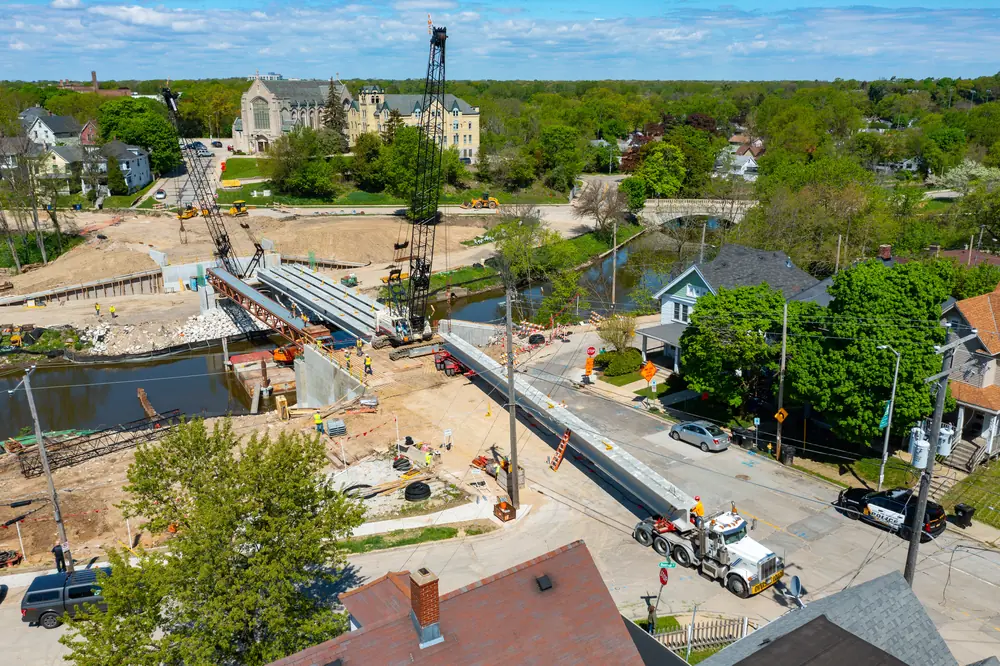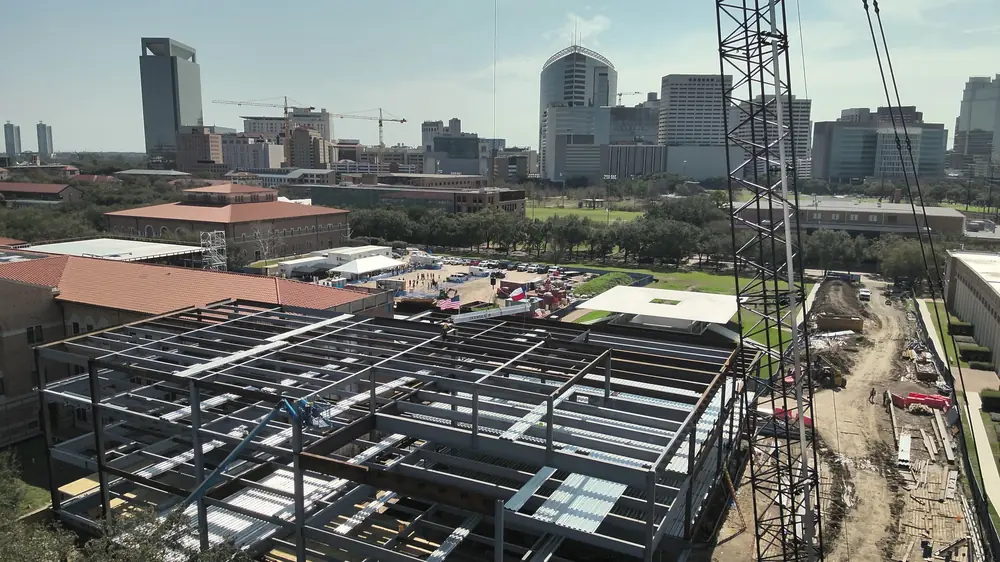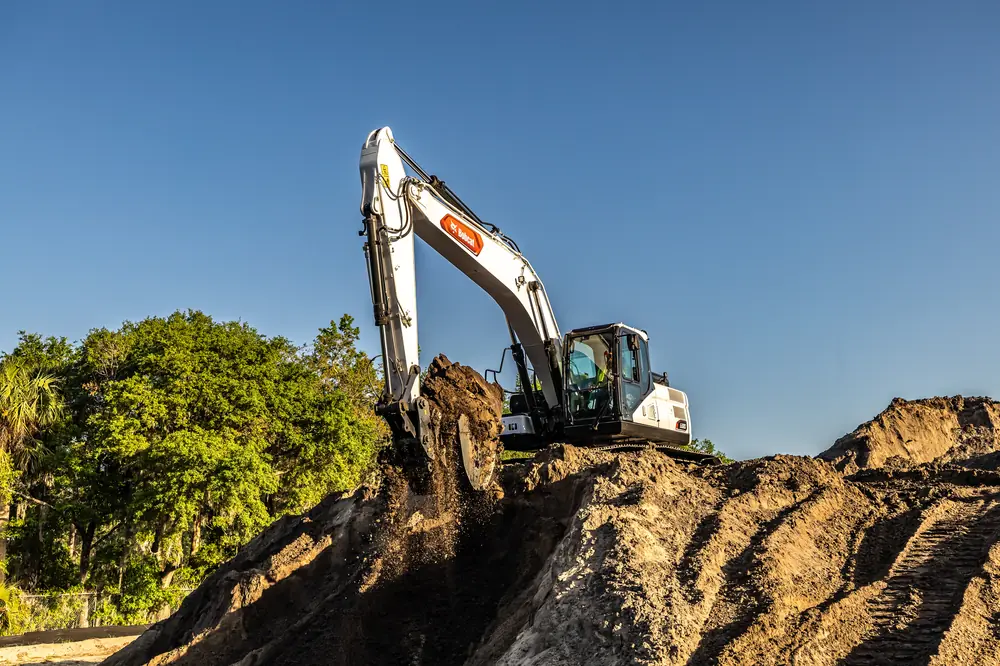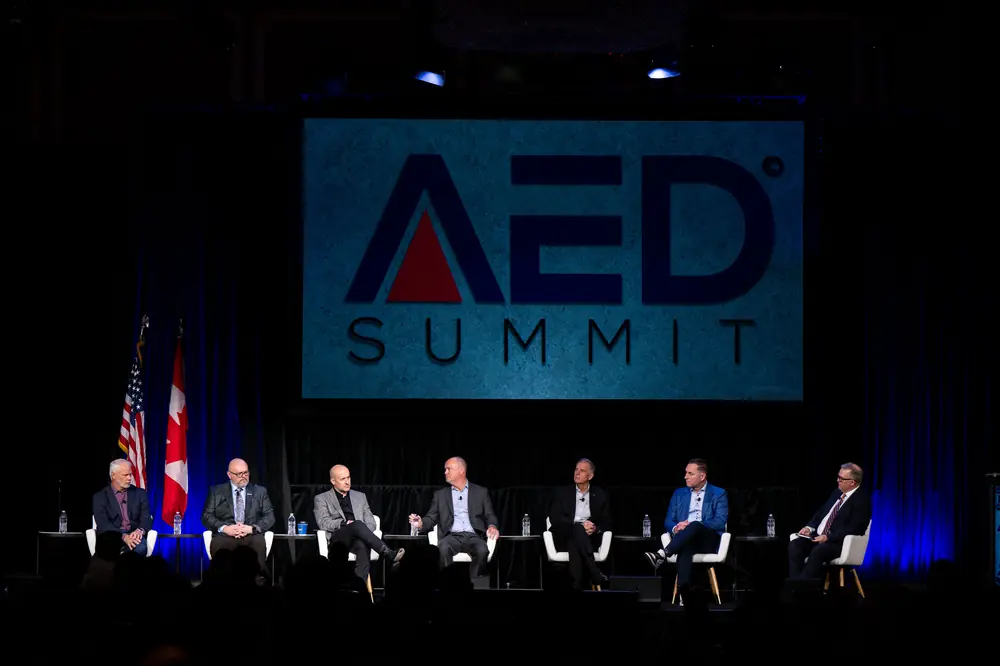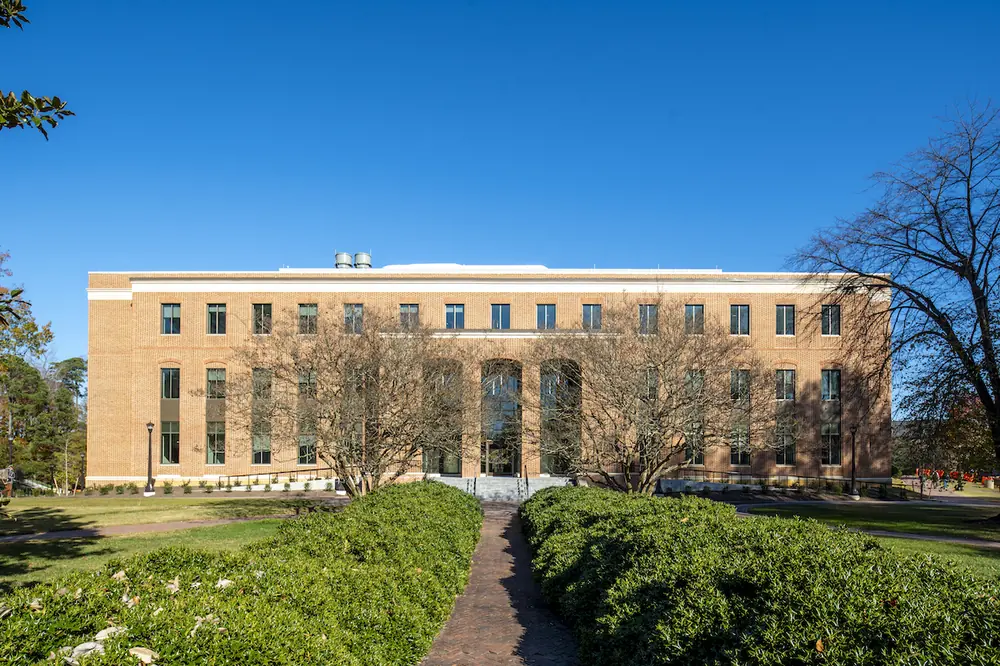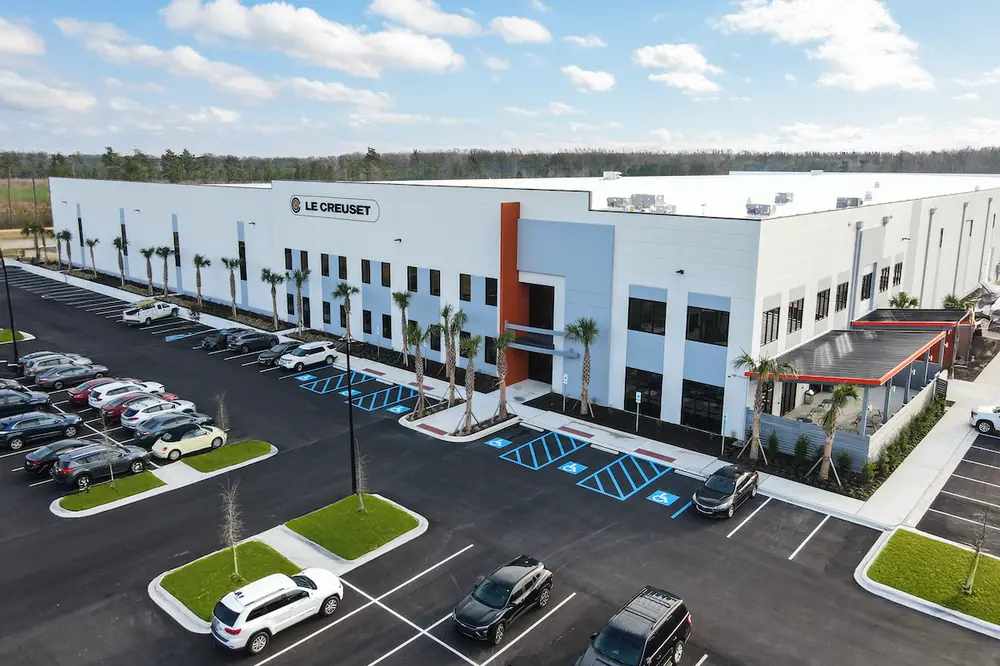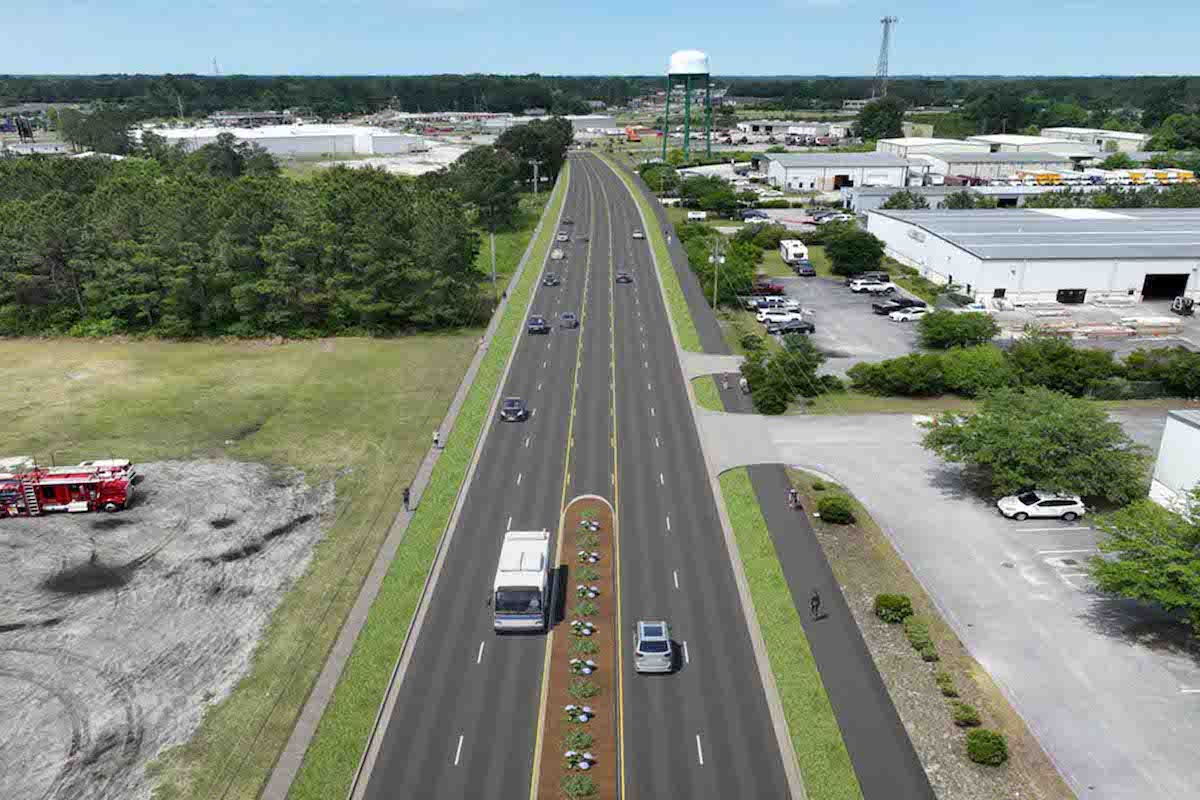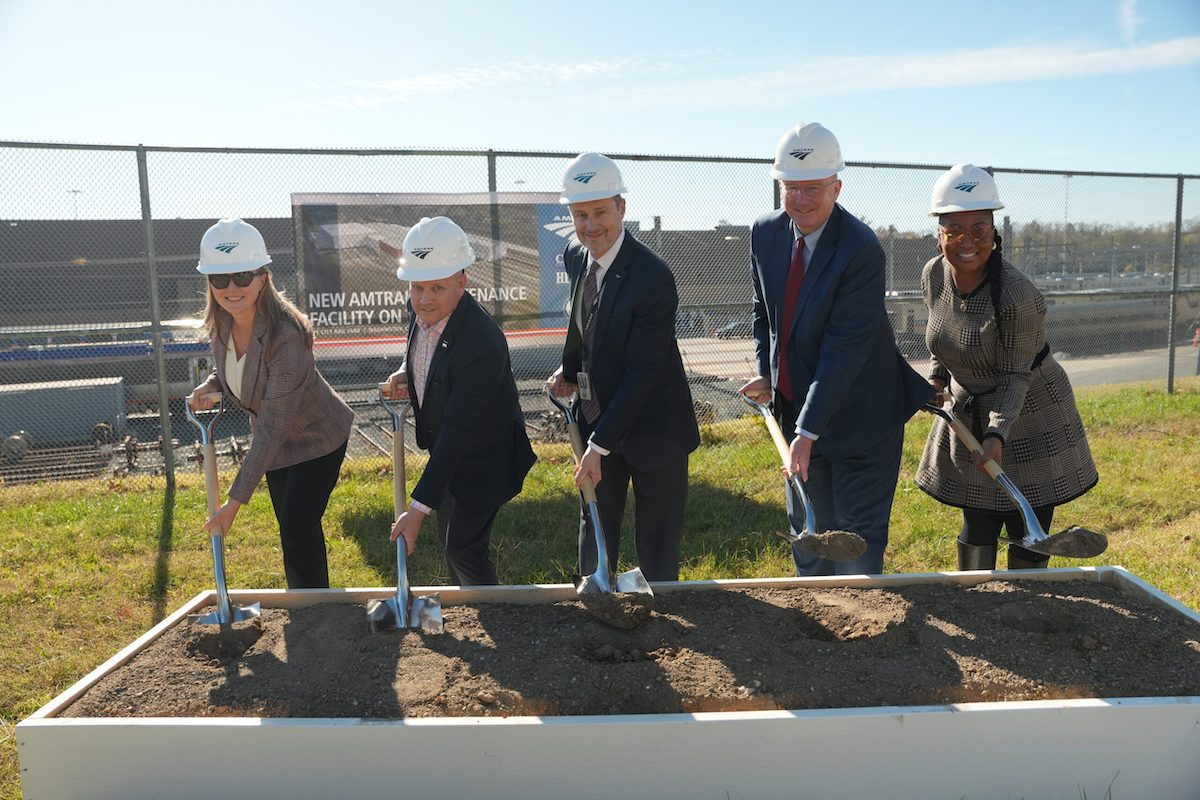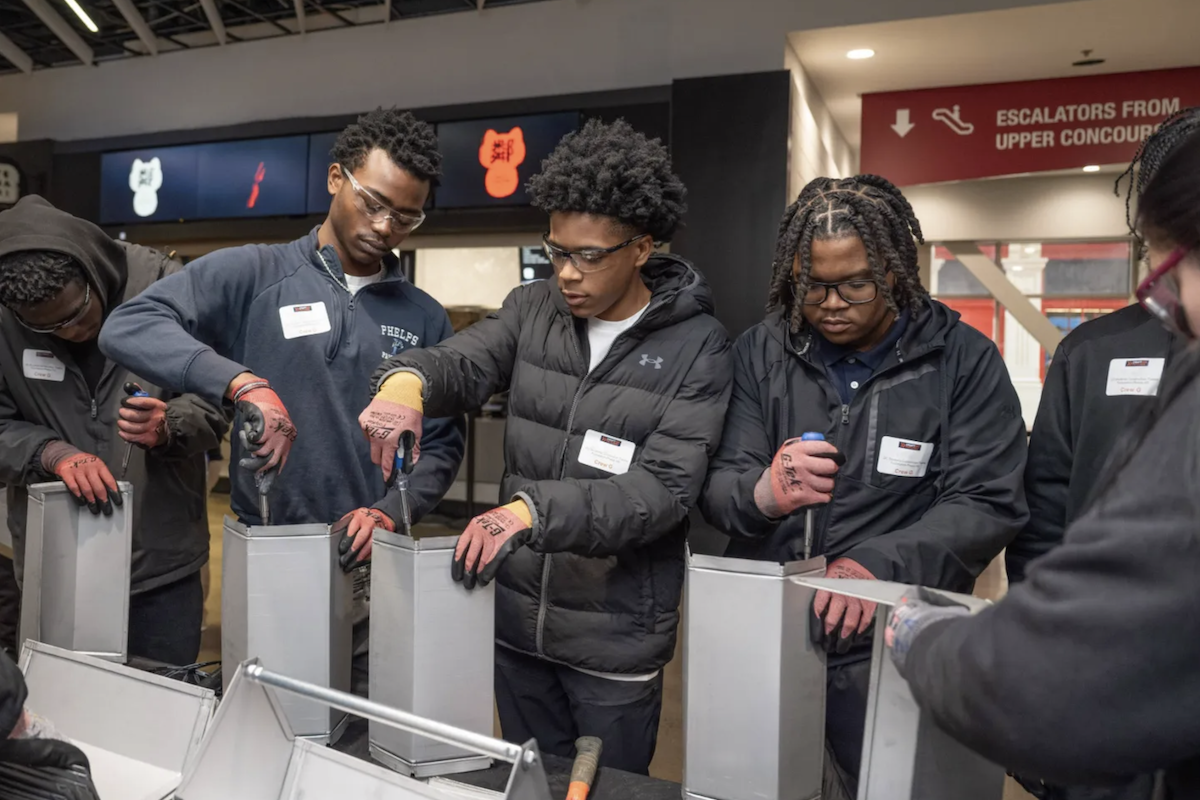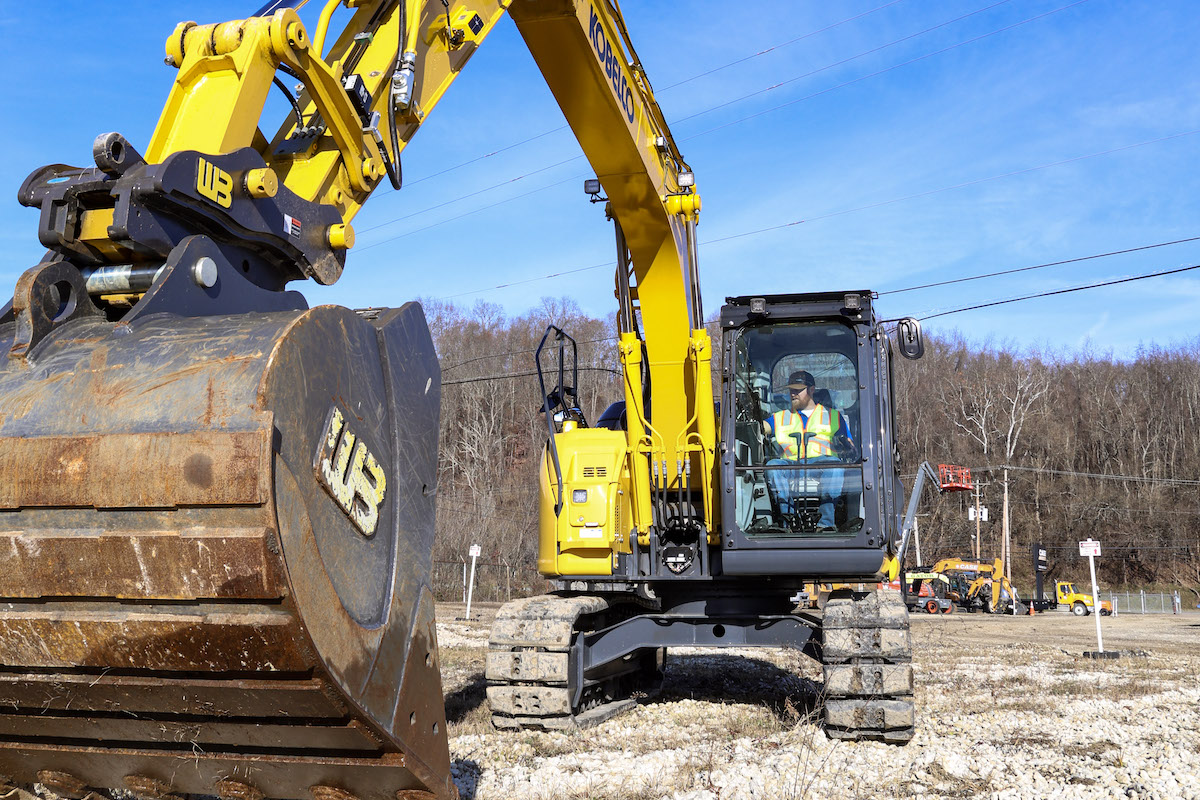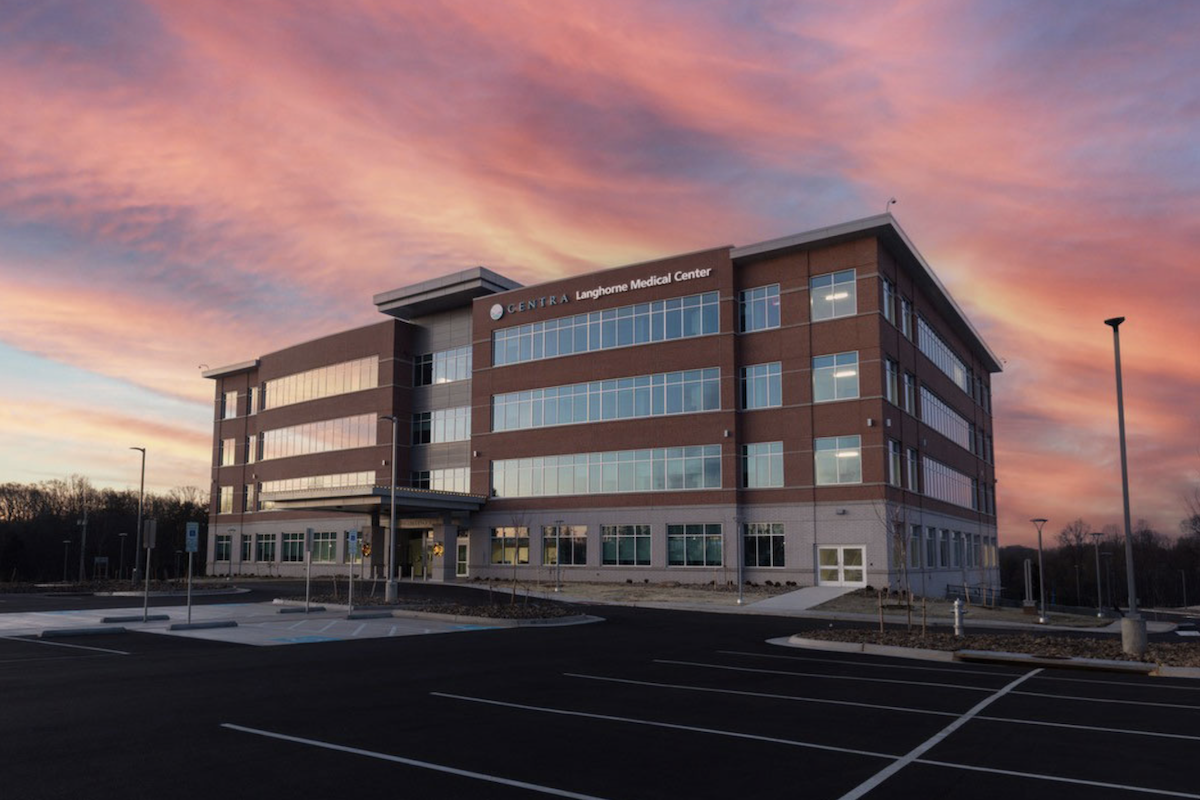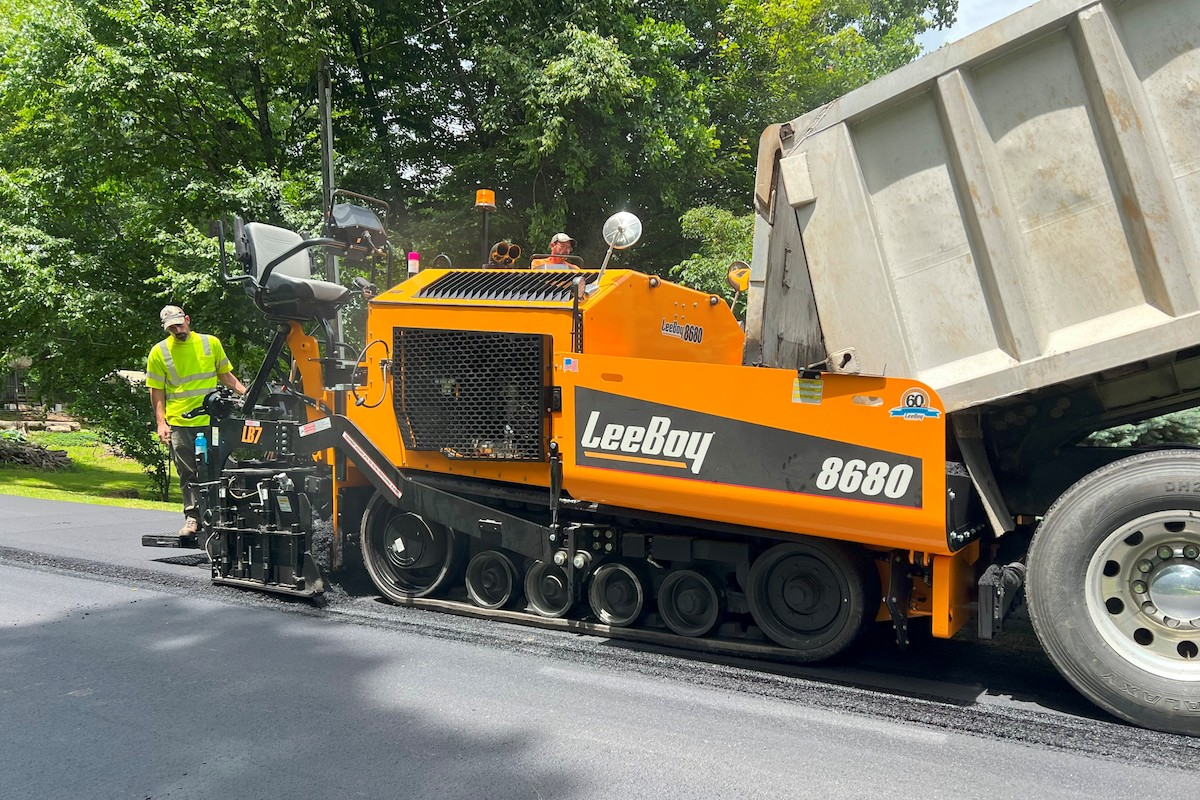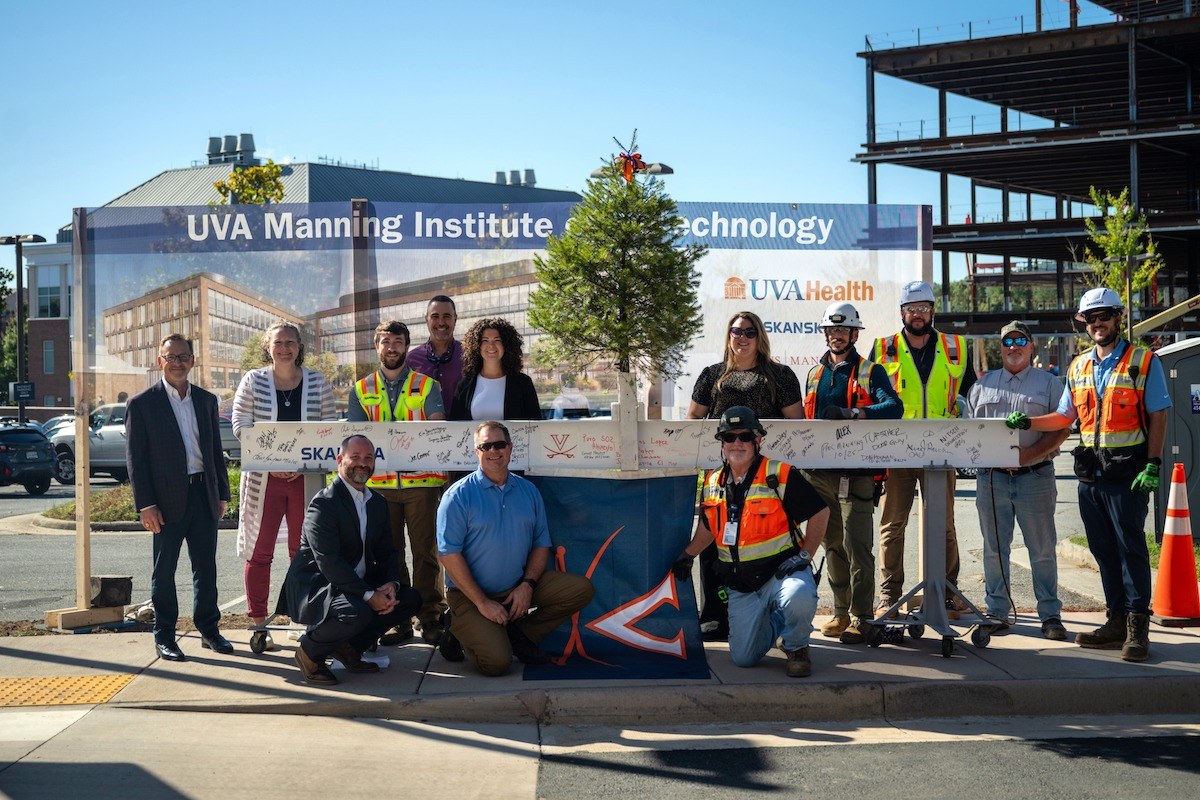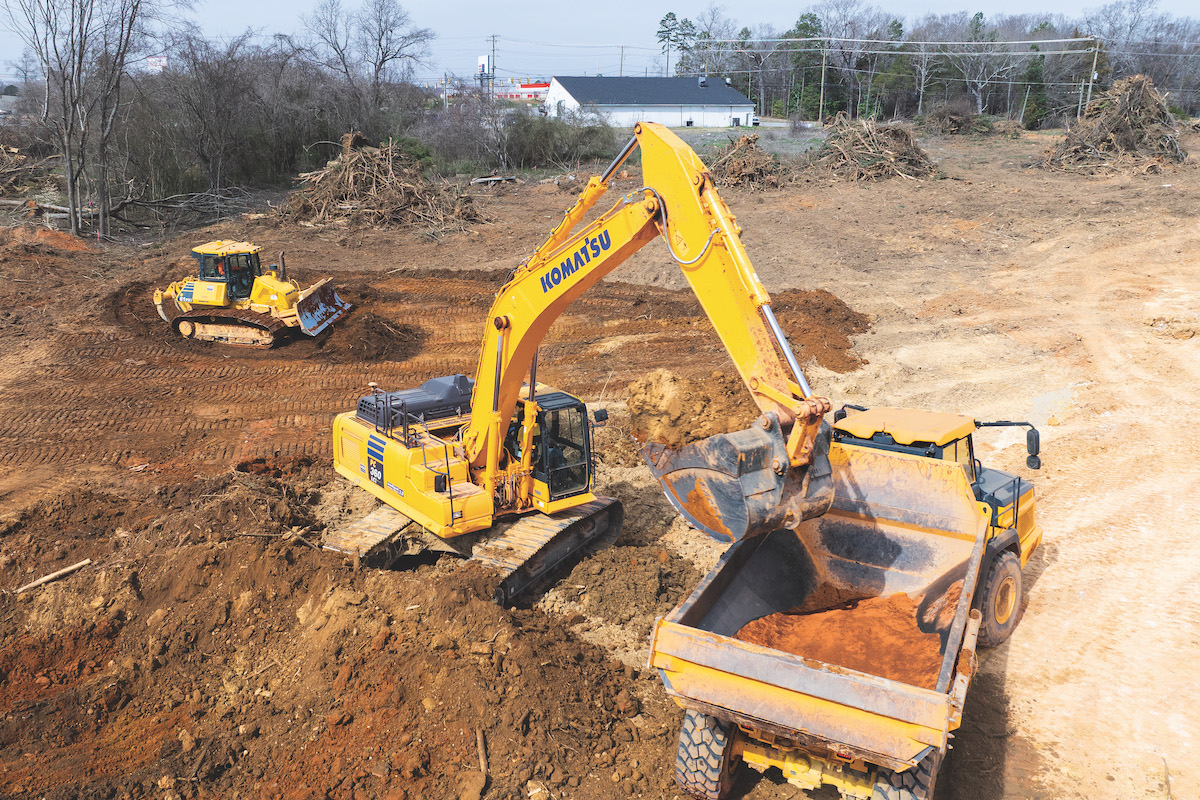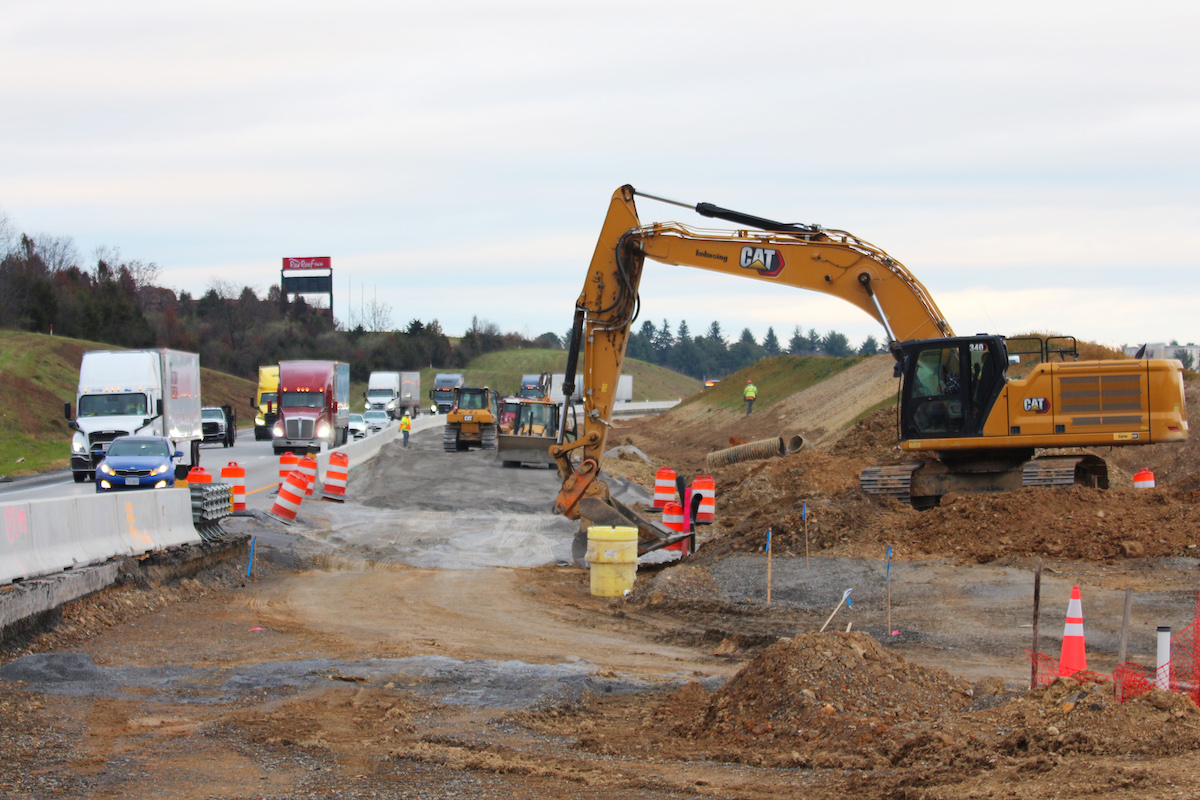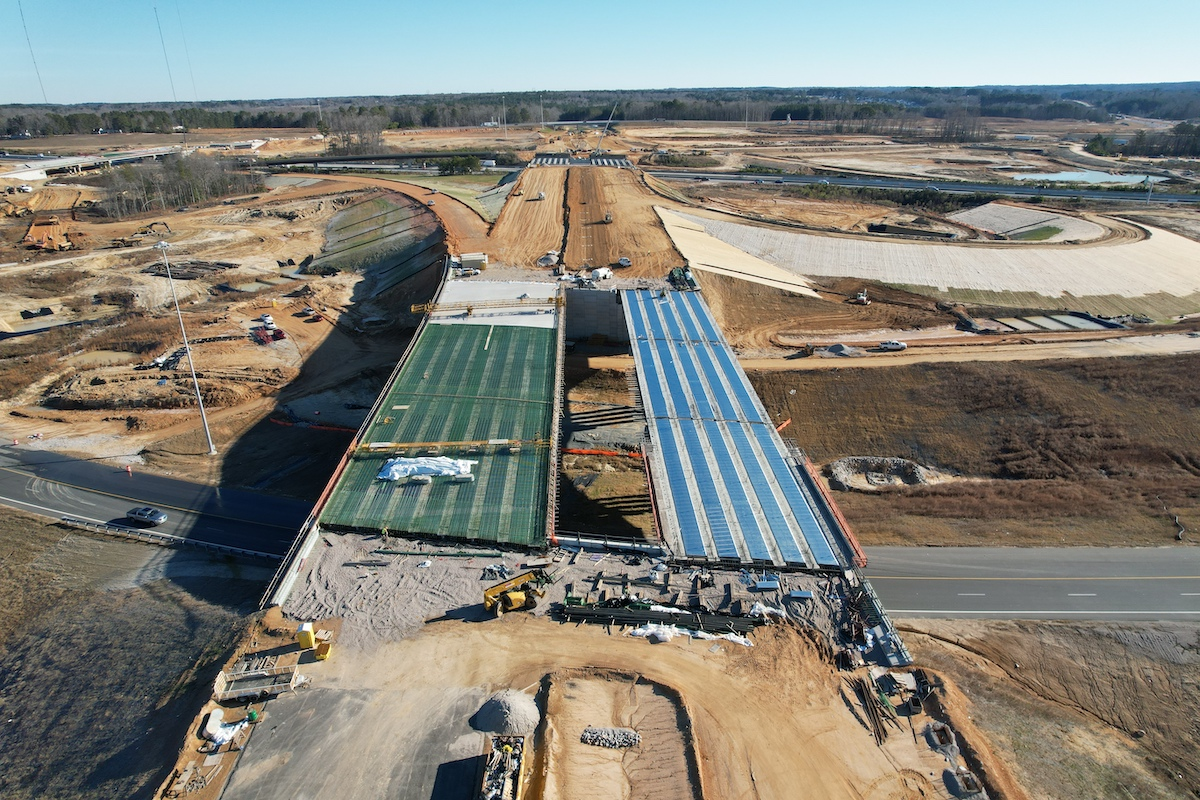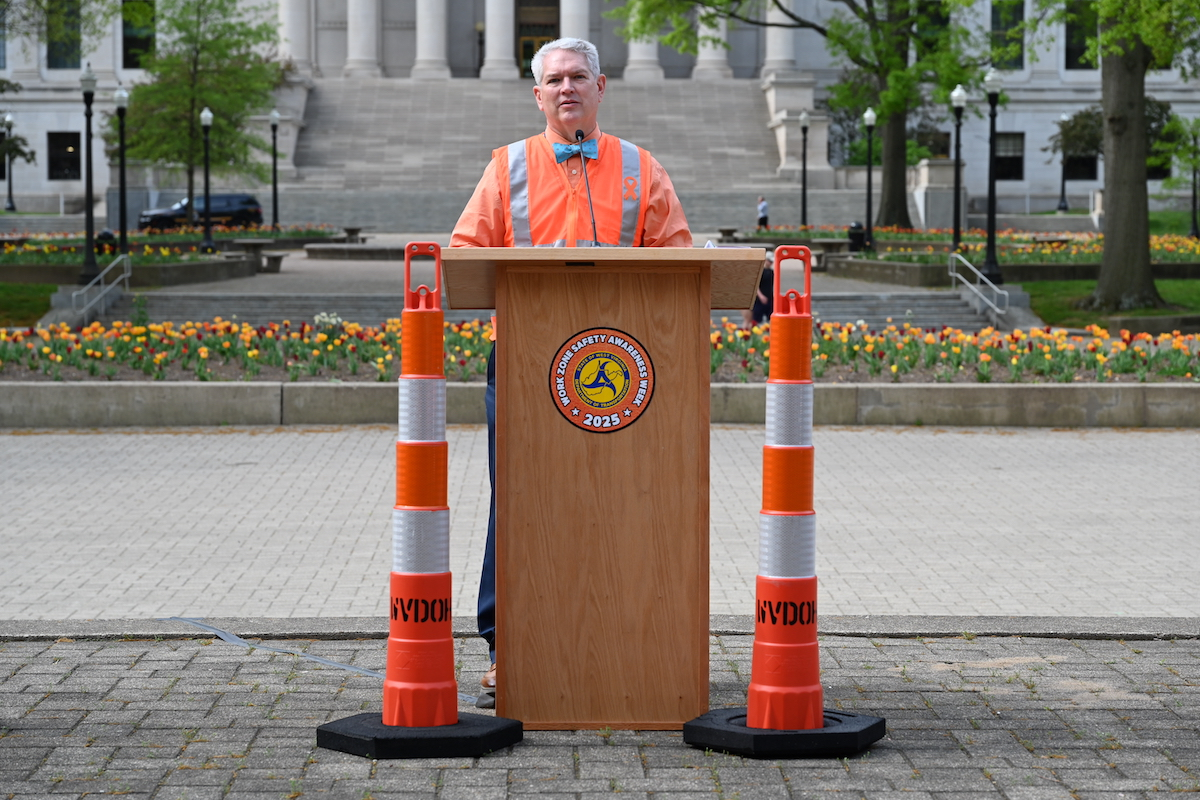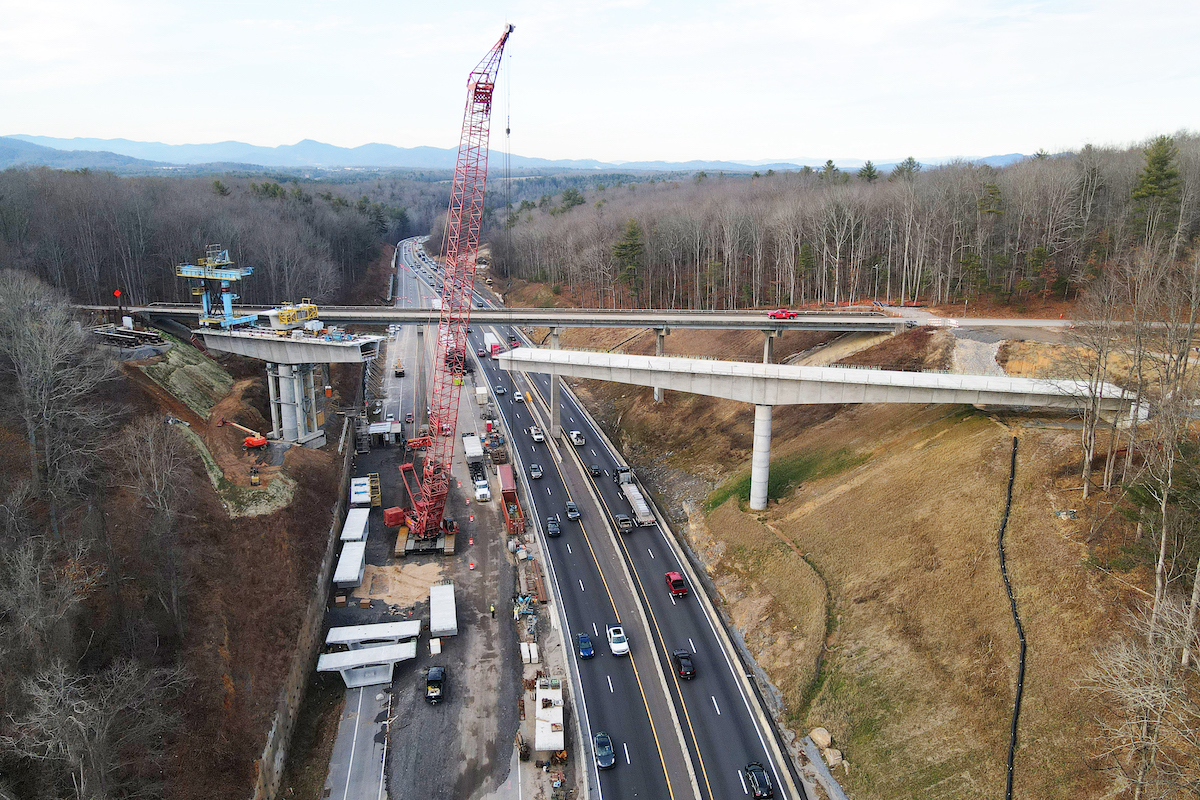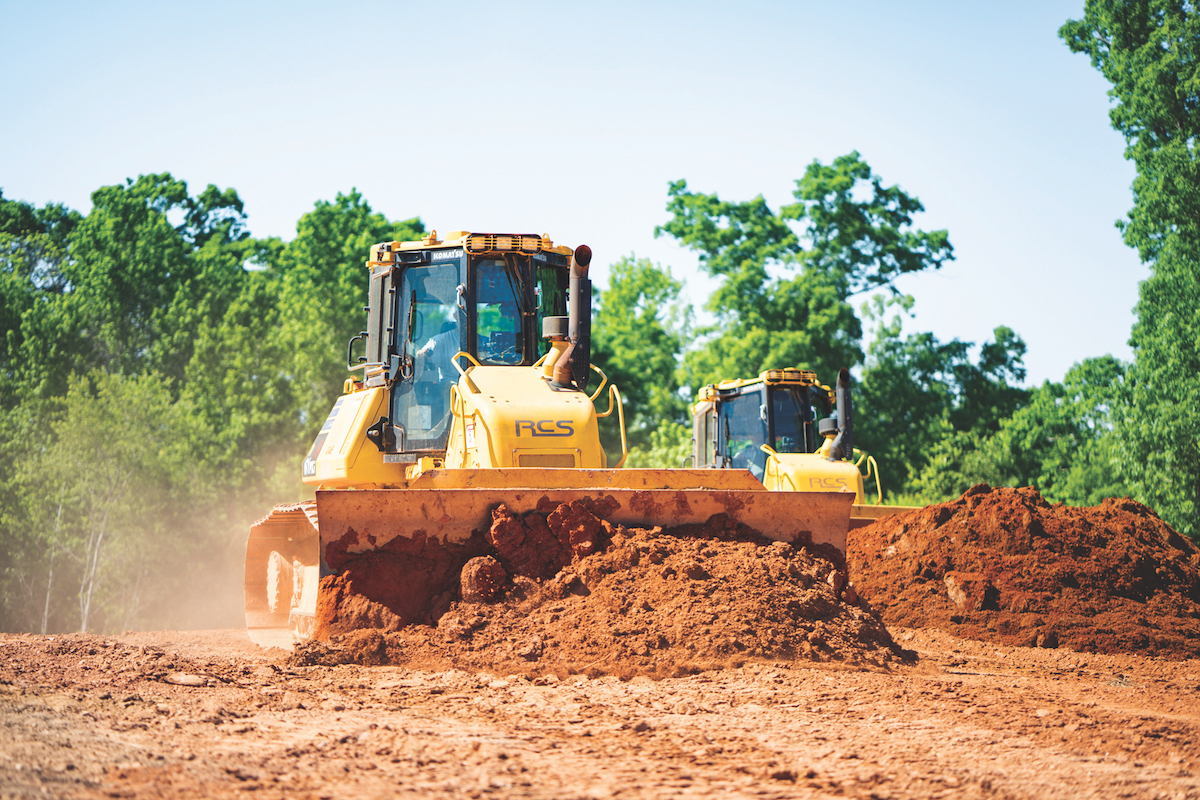“Those improvements are based on the lack of capacity and condition of the existing structures,” says George Ryan, Corridor Manager for the I-74 project and lead of the general engineering consultant team for the Iowa Department of Transportation and Illinois Department of Transportation.
The current twin bridges have two 11-foot-wide lanes in each direction and no shoulders, which leads to back ups after crashes. One of the existing bridges was built in 1935 and the other in 1959. Modjeski and Masters of Mechanicsburg, Pennsylvania, as part of the Alfred Benesch of Chicago design team, designed the original bridges and completed the final design of the new arch bridges. Benesch of Chicago designed the new approaches.
Ramps have been reconfigured, and the new road and bridges will have three through lanes in each direction. The bridges will each have four lanes, including an entrance and exit lane, and a bicycle and pedestrian path separate from traffic.
The core downtowns of Bettendorf, Iowa, and Moline, Illinois, are on the river and significant traffic flows back and forth. The bridges carry about 80,000 vehicles daily, but that number is expected to increase with anticipated population growth.

| Your local Topcon Positioning Systems Inc dealer |
|---|
| Linder Industrial Machinery |
The new structures are built to current standards and have maintenance and inspection features, including sensors that will send real-time data to officials at the Iowa DOT and inspection walkways under the bridges. “The bridge is built to require minimal maintenance for at least 100 years,” Ryan says.
The 5.4-mile long project includes improvements on the roadway in addition to replacement of the bridges. The Iowa DOT serves as the lead agency for construction of the bridges in coordination with Illinois DOT. The DOTs let separate contracts for different sections of the project. Construction began on the bridges in July 2017.
The staging required bridge contractor, Lunda Construction Co. of Black River Falls, Wisconsin, to complete the westbound bridge first and then shift both the westbound and eastbound traffic to the new westbound lanes. Then the company will complete the eastbound bridge.
More than 26 of the 30 arch segments are up on the westbound bridge and the rest were expected to complete in spring 2020. Crews are working off barges in the river. A Manitowoc 650-ton Crane lifts arch sections, weighing up to 250,000 pounds into place. Several other cranes assist with other lifts for girder placement on the approach spans of the bridges.
Following closure of the westbound arch, the contractor will install the prebuilt steel decking system and two spans of girders on the approaches. “They will concentrate on connecting the approach spans to the arch and pouring the deck as soon as we install the centerpiece of the arch,” Ryan says.

| Your local Trimble Construction Division dealer |
|---|
| SITECH Mid-South |
All piers for the eastbound side are complete, and crews are setting girders. Work will soon begin on construction of the eastbound arches.
A polar vortex during the winter of 2018-2019 affected workflow. Major flooding followed in spring 2020, interfering with arch erection. “It wasn’t safe to work at certain water heights and river velocity,” Ryan says.
The westbound bridge is expected to open to traffic in the second half of 2020.
The Illinois DOT awarded Walsh Construction of Chicago one of those contracts, and the company is widening more than a mile of I-74 from 7th Avenue to South of Avenue of the Cities in Moline. Walsh has completed two stages, the first entailed work on surface roads, so they could handle additional traffic during construction, reports Kevin Kegebein, Project Manager for Walsh.
During stage two, crews reconstructed I-74 westbound and widened to the inside. Traffic was removed from I-74 and detoured to the surface roads upgraded during stage one. The work included concrete paving, installing retaining walls and building structures.

| Your local Volvo Construction Equipment dealer |
|---|
| Richmond Machinery & Equipment |
Walsh demolished eight bridges and is rebuilding back seven. All have structural steel girders. Five of the bridges being rebuilt have mechanically stabilized earth (MSE) abutments. Two have concrete slope wall abutments. One of the ramp bridges was reconfigured to be an MSE wall. During stage three, currently under way, Walsh is reconstructing and widening the eastbound lanes, with traffic diverted to the westbound lanes completed during stage two.
Throughout the project, Walsh has used stringless paving and trimming. GPS tablets were used to check the dozer information electronically. All of the old pavement has been crushed into base for the new road.
A few contracts are pending: construction of a viaduct on the eastbound side in Iowa, removal of the old bridge, and landscaping on both the Iowa and Illinois sides.
The team has met together about schedule and goals for completion and how to help each other, Ryan says. Kegebein also reports good cooperation with the Illinois DOT, Moline and adjacent project construction teams.
“The city of Moline has been an excellent help to us,” says Kegebein, adding that Moline let Walsh hold a job fair in one of its buildings, and it has assisted with traffic switches. “They have been so easy to work with.”

| Your local Bomag Americas dealer |
|---|
| Linder Industrial Machinery |
The team also has made a commitment to safety and is following robust safety plans and national guidelines for avoiding COVID-19. “The health and safety of everyone on this project is a priority,” Ryan says.
The entire corridor project is scheduled for completion in 2021.
“This project is going to provide safe, efficient interstate access in the Quad Cities,” Ryan says. “The bridges will be iconic structures in the region.”
Used with permission. © 2020 Iowa Department of Transportation




